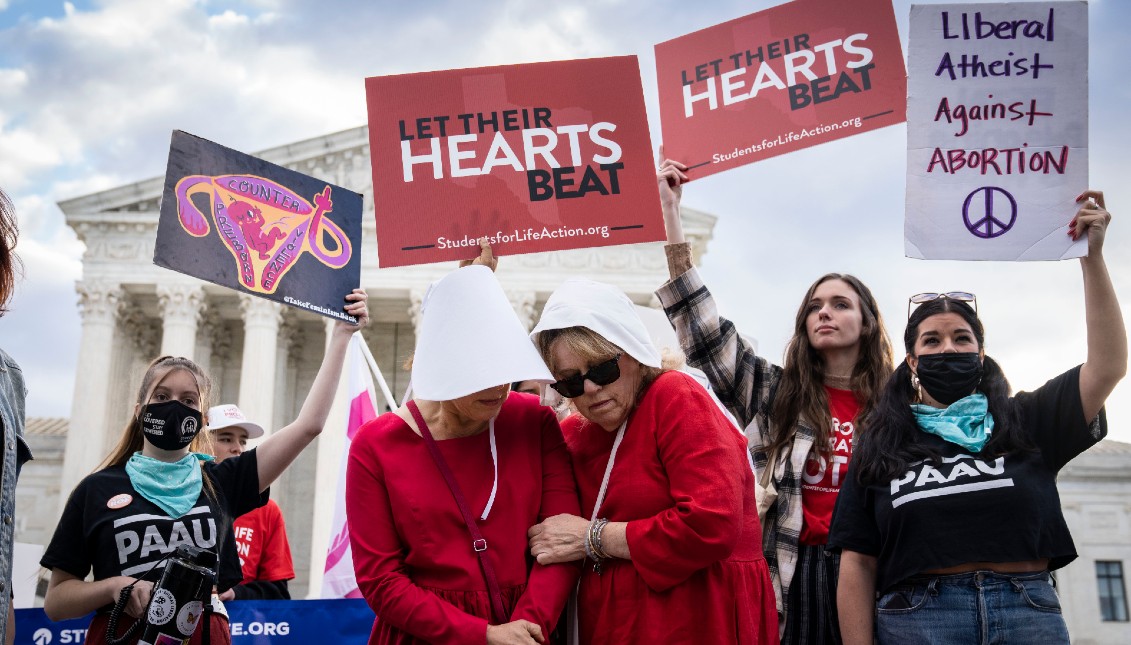When the controversial law SB-8 was passed in Texas two months ago, which prohibits abortion in the state from the sixth week of gestation, the alarms were set not only because of the effect that the decision would have on women’s health , but because of the constitutional precedent that was being created.
Experts pointed out that this law could be the model for other restrictive laws on rights not only to abortion or access to health rights protected in the Roe v. Wade, but in cases like carrying weapons.
After many failed attempts to block the law and lawsuits against SB-8, this Monday the Supreme Court met again to hear the arguments for and against it for the first time. And everything seems to indicate that the Court will suspend the law, but not because of the abortion issue itself, but because due to its structure, the law cannot be sued as unconstitutional.
PODCAST: The abortion debate and a new “round” in the US
The lawsuits the justices reviewed argue that Texas law conflicts with landmark Supreme Court rulings that prevent a state from banning abortion in the early stages of pregnancy.
In addition, due to the way it is written, challenging the law in any court is practically impossible, as has been demonstrated in the various attempts by the detractors in recent months.
The controversy
The detail that makes this law particular is that it leaves its application in the hands of private citizens, who can sue doctors or anyone who helps a woman to have an abortion, and can also receive a reward of $ 10,000. “This unique enforcement mechanism has frustrated efforts to challenge it. In general, the state would be in charge of enforcing the law and suing state officials would be the appropriate legal avenue, ”he explains. AP, but if the law is ‘applied’ by citizens it makes their challenge more complicated.
Today, the Supreme Court listened to arguments challenging Texas #SB8. The Court is not reviewing whether SB8 is constitutional, focusing instead on procedural arguments. Here is what we know
– NAPAWF (@NAPAWF) November 1, 2021
–
In the discussion that took almost three hours, the judges heard arguments for and against the law, and two of them, the conservatives Brett Kavanaugh and Amy Coney Barrett, would appear to change their vote taking into account the procedural problem.
As things are, it is most likely that the Supreme Court will decide against Law SB-8. While it will most likely not block it, it will decide whether the Justice Department and abortion providers can challenge it in federal court and whether the law will remain in effect while legal discussions continue.
All of this would happen before December 1, when the Court will have to discuss another controversial Mississippi abortion law, which aims to reduce the time for termination of pregnancy from 24 to 16 weeks.
– .


